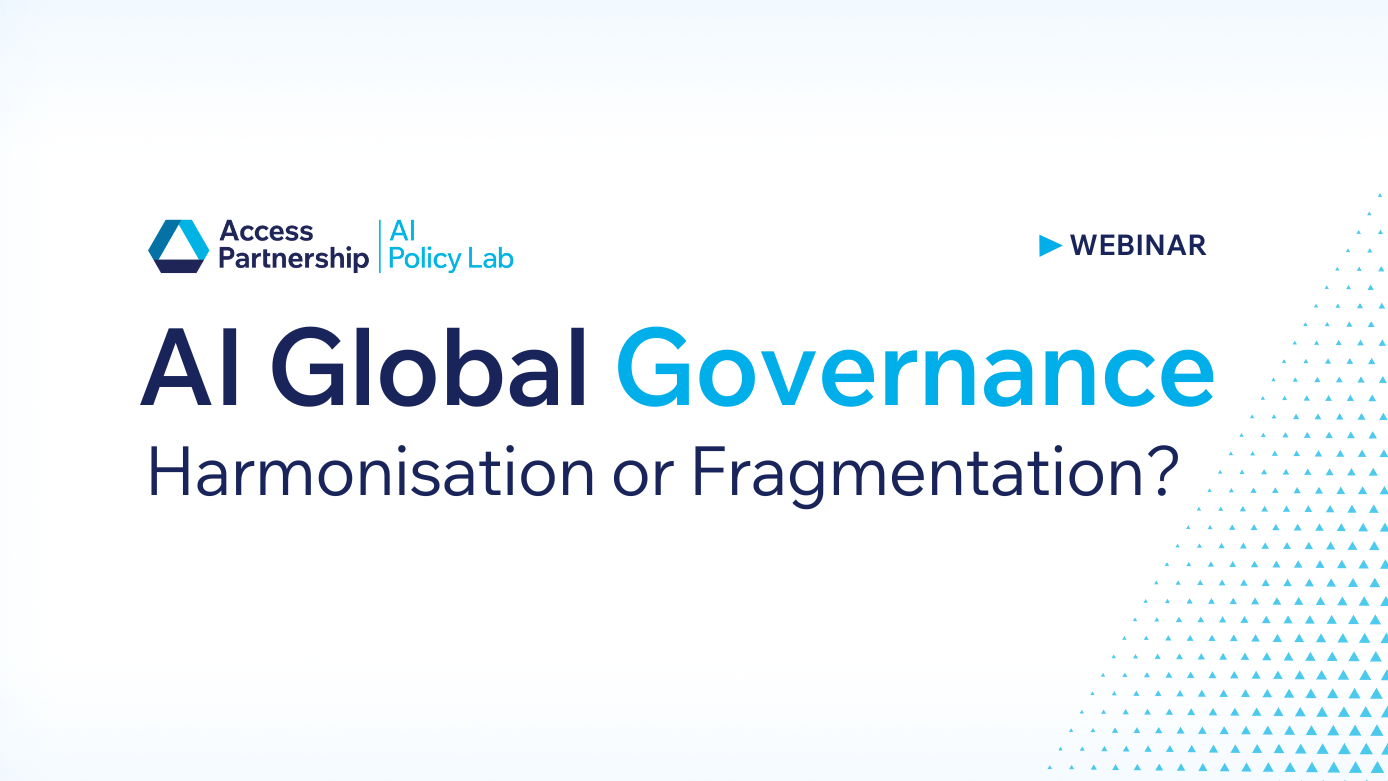The recent AI Policy Lab webinar, AI Global Governance: Harmonisation or Fragmentation?, hosted by Ali Azeem, Access Partnership’s Global Head of Growth, examined the shifting dynamics of AI regulation and governance. Featuring expert panellists Kristina Podnar, a digital policy authority, and Var Shankar, Chief AI and Privacy Officer at Enzai, the session examined the debate between harmonisation and fragmentation in AI regulation, the role of businesses, and the future of responsible AI use.
The Global Challenge of AI Regulation
The panellists highlighted the significant differences in AI regulatory approaches across regions. The EU’s safety-focused AI Act, China’s swift and centralised oversight, and the decentralised, state-led approach in the United States all represent distinct strategies. While these approaches address local priorities, they underscore the need for global alignment on key principles and vocabulary to ensure interoperability and inclusivity, particularly for smaller nations and organisations.
The Role of Businesses in AI Governance
Kristina Podnar emphasised the importance of corporate responsibility in shaping the future of AI. Forward-thinking companies are investing in self-regulation to maintain trust, mitigate risks, and unlock new opportunities in a fragmented regulatory environment. She highlighted how businesses can lead the way in fostering innovation while embedding trust and accountability into AI systems.
Harmonisation vs. Fragmentation
Var Shankar advocated for a balance between global standardisation and respecting local values. While harmonisation can streamline governance and foster innovation, fragmentation allows nations to address cultural nuances and unique societal needs. Both panellists agreed that a unified framework of principles and metrics could help bridge these divides while maintaining flexibility.
Looking Beyond AI
The discussion extended to future technologies such as quantum computing, genetic engineering, and extended reality. Panellists stressed the importance of applying lessons from AI governance to these emerging fields, ensuring equitable access and responsible use on a global scale.
If you’d like to know more about how AI regulation could impact your organisation or discuss the broader implications of the insights shared, don’t hesitate to reach out to Access Partnership. We’re here to help you navigate complex regulatory environments and make innovation work for your goals. For further insights, contact Ali Azeem at [email protected].


Tags




